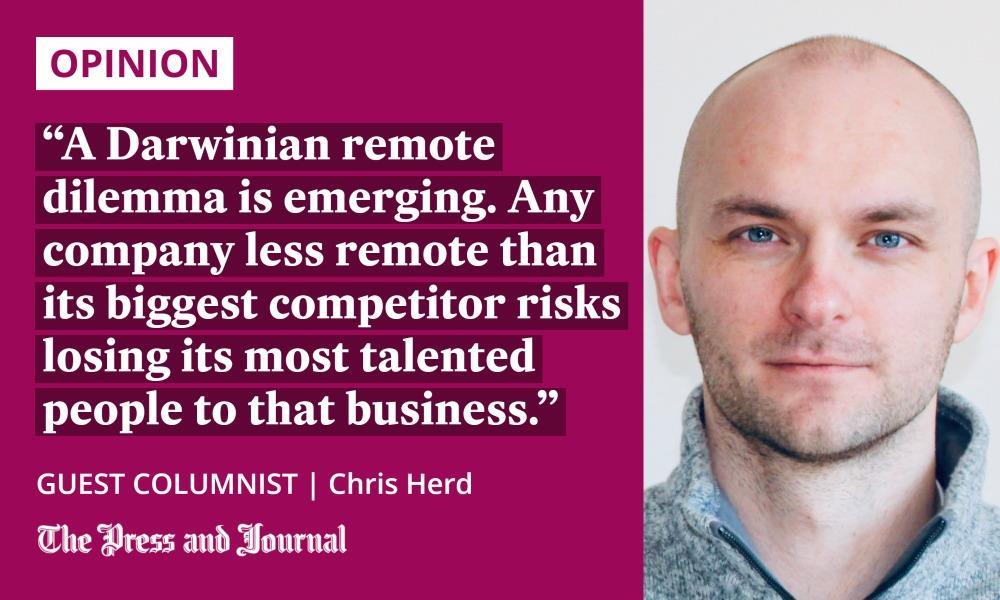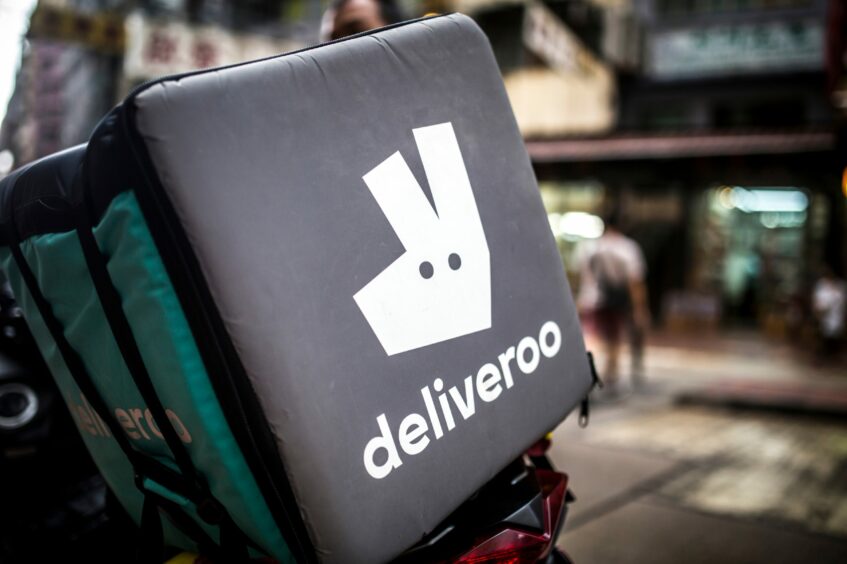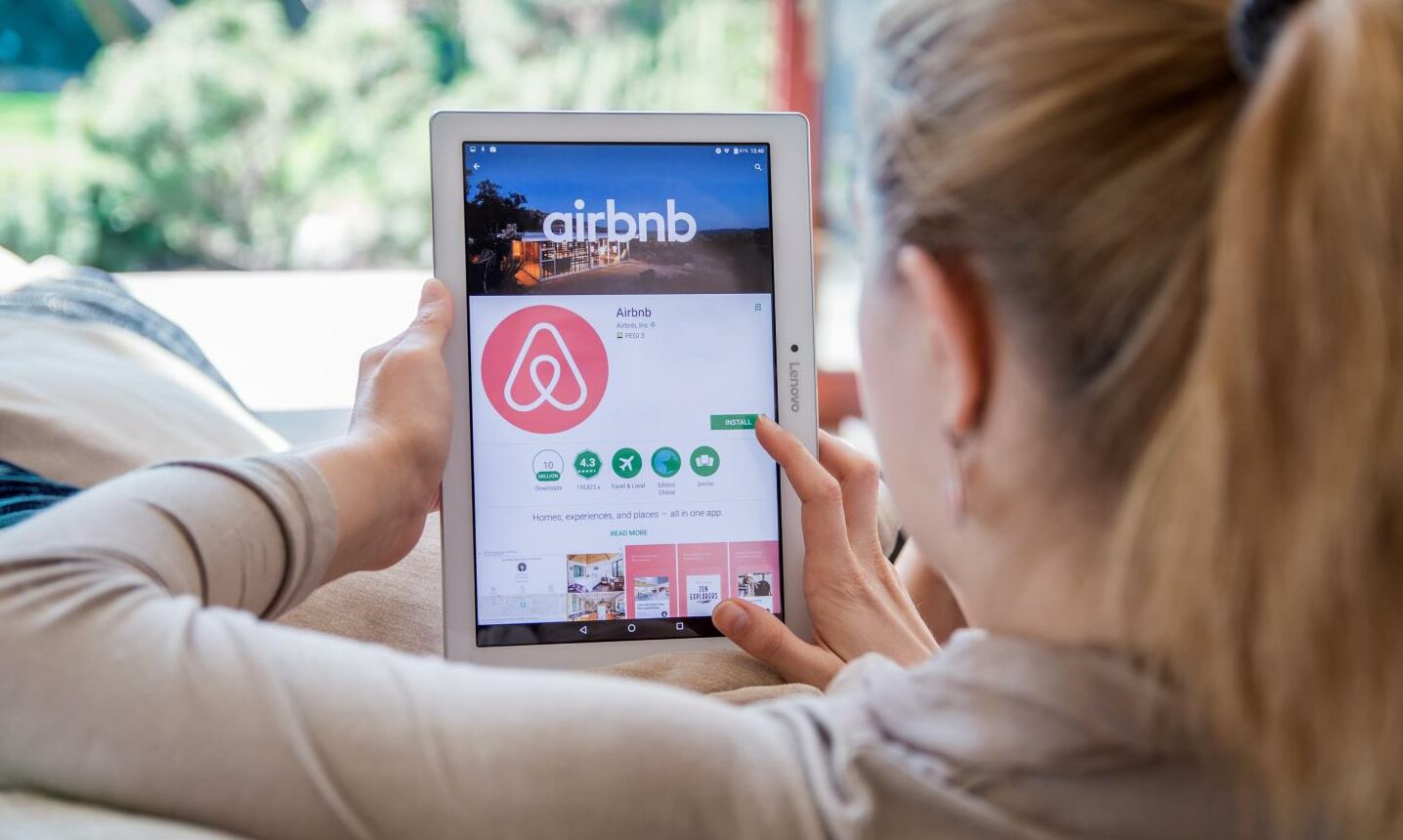Who remembers dial-up internet in 1995?
For me, my family Packard Bell computer became a gateway to another world.
Then, nobody trusted anyone enough to purchase goods online. By 2005, things began to change. Amazon and eBay had emerged and some people were willing to purchase some things on the internet.

In 2015, almost everyone was buying some products online. The internet and e-commerce had matured. Amazon led a revolution in purchasing behaviour, beginning with books and expanding to everything, with larger inventory, better cost, and delivered ever more quickly.
Today, almost everyone buys almost anything online, from food – with companies like Deliveroo – to cars, from companies like Cazoo. We’ve grown to trust the internet in ways we couldn’t have imagined when we prayed someone wouldn’t phone while we surfed the web in the days of dial-up.
E-commerce has crushed physical stores. You don’t have to walk down your local high street to know that.
Think about Amazon versus any department store; how many still exist? The scale, efficiency, and effectiveness of virtual stores beat physical shops into submission in less than 30 years.
The same thing is happening with remote companies versus office-based companies today.
50 to 80 million jobs could be done remotely by 2030
Remote work was rising rapidly before the pandemic. Between 2008 and 2018, remote work exploded by 400%. Think of this as remote work’s dial-up period.
Jeff Bezos said: ‘Your margin is my opportunity.’ Your office is becoming your competitor’s opportunity
Few companies trusted workers to operate away from the eyes of management. But some did, and that was enough to begin to turn the tide.
Then the pandemic happened, accelerating this trend by 10 years overnight. Now, estimates suggest anywhere between 50 to 80 million of the 255 million desk jobs globally will be done remotely most of the time by 2030.
Look at the future’s most exciting companies; start-up businesses always define the playing field everyone else will have to operate on. Almost all of them are remote-first from founding. Assuming any rate of growth in these businesses, and looking at the life expectancy of incumbent companies, eventually every desk job will become remote-first.
Alongside that, the biggest companies are leaning into remote, hybrid and flexible work because workers are forcing them to. If Google and Amazon understand the importance of this, smaller companies must as well.
Jeff Bezos said: “Your margin is my opportunity.” Your office is becoming your competitor’s opportunity.
Limiting flexible working will be a death sentence for businesses
A Darwinian remote dilemma is emerging. Any company less remote than its biggest competitor risks losing its most talented people to that business.
In the knowledge economy, which every white collar business operates in globally, companies are only as successful as the talent that works with them. If your competitors have more talent, they win.
What happened to every company that didn’t adopt computers in the 1990s? What happened to every company that didn’t implement software in the 2000s? What happened to every company that didn’t embrace the internet in the 2010s?
Not giving workers the amount of flexible work opportunities they want will be a death sentence to companies over the next 10 years. The Great Resignation isn’t happening because workers don’t want to work, it’s happening because workers are quitting companies who treat them badly, destroying quality of life for no reason outside of a lack of trust.
Both employers and staff are saying the same words, but they mean very different things. There is huge and growing resentment bubbling beneath the surface
And, a quick word of caution before you pat yourself on the back because you’ve chosen to be hybrid and you think none of this applies to your company. Are you giving workers the version of hybrid they want?
Companies surveyed their people frequently throughout the pandemic. Workers consistently told them they want hybrid work. Companies are responding, telling their teams they will be hybrid. The media has spent a lot of time reporting on the perceived agreement that everyone wants hybrid work.
The problem? When workers say “hybrid”, they typically mean they want the flexibility to choose when and where they work from all the time. But, when companies tell their teams they are going to be hybrid, they typically mean that they are going to prescribe to their teams which day and which hours their teams must be in office.
Both sides are saying the same words, but they mean very different things. There is huge and growing resentment bubbling beneath the surface.
There has to be balance
Companies should spend time together physically, and workers do want time in person with their colleagues. But there must be a purpose for it, outside of management’s desire to watch workers sit in chairs for eight hours each day. There has to be a balance.
The emergence of portable computing, great communication and collaboration software, and the internet which allows us to connect with anyone on the planet instantly have empowered new ways of working and living to emerge.
Companies that embrace remote work will replace every company that doesn’t. Definitely not today, and probably not tomorrow, but it’s already happening and won’t be stopped.
Remote and flexible work has shown us a path to a better future of living. Business leaders have a choice to make, and their teams are watching.
Chris Herd is founder and CEO of remote working platform, Firstbase





Conversation